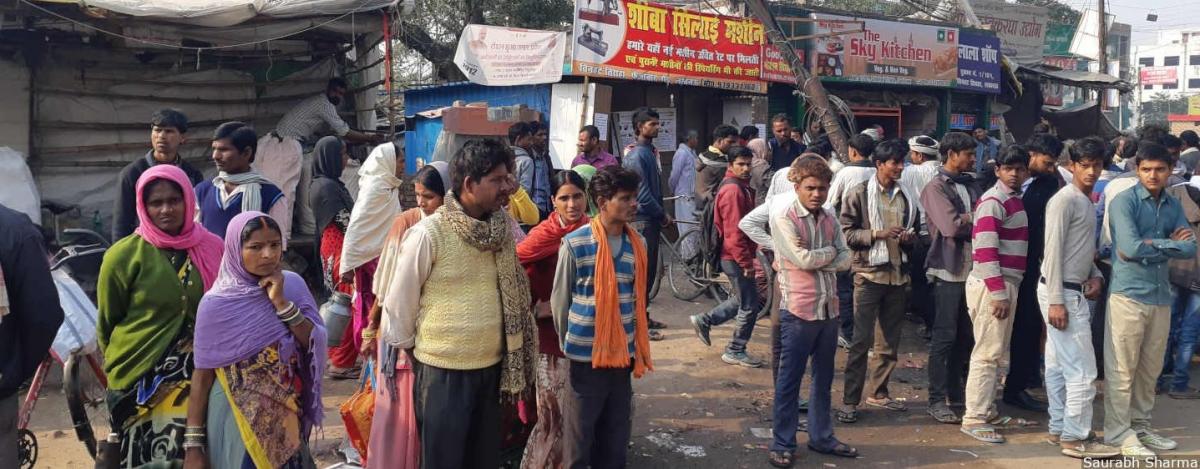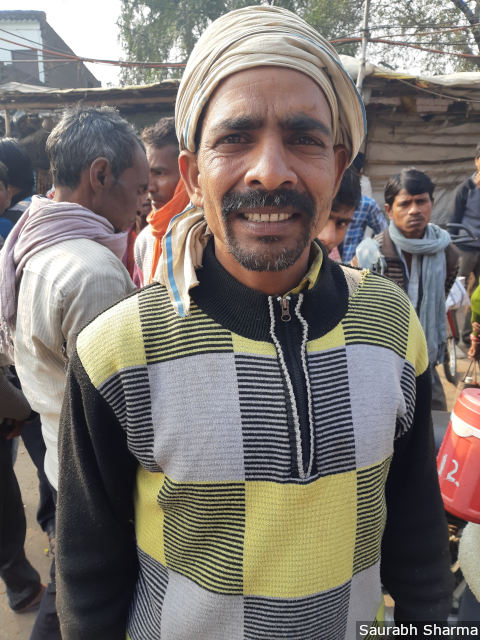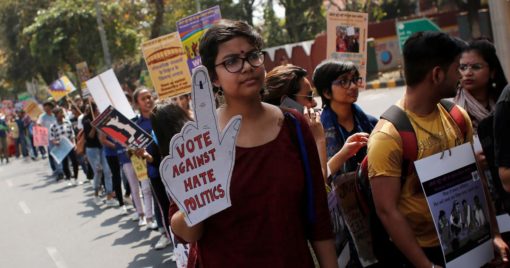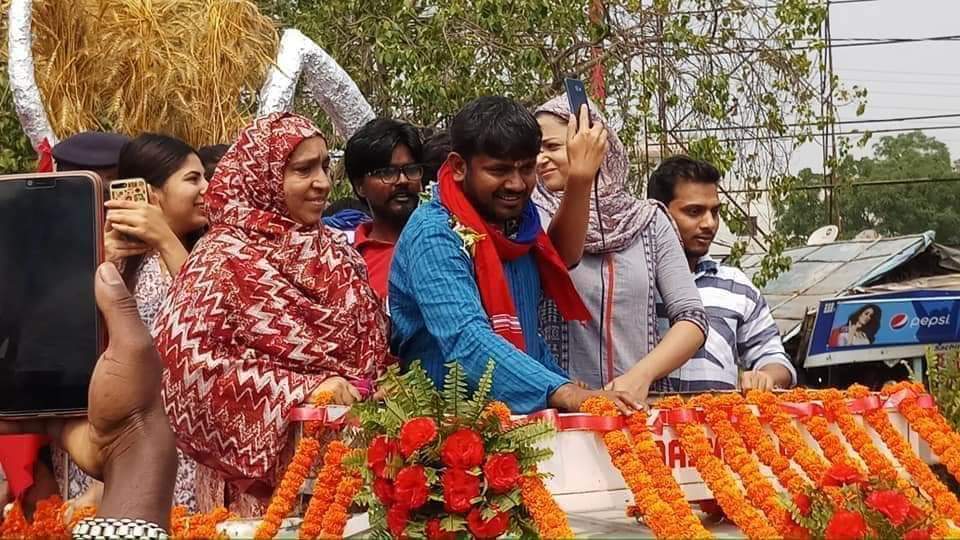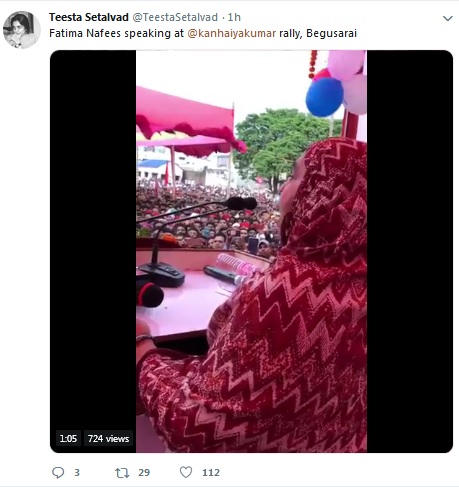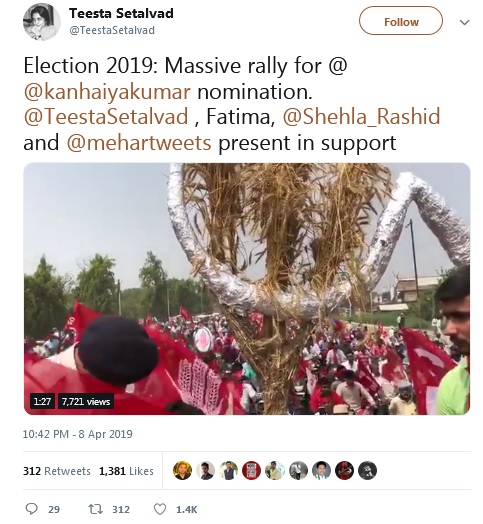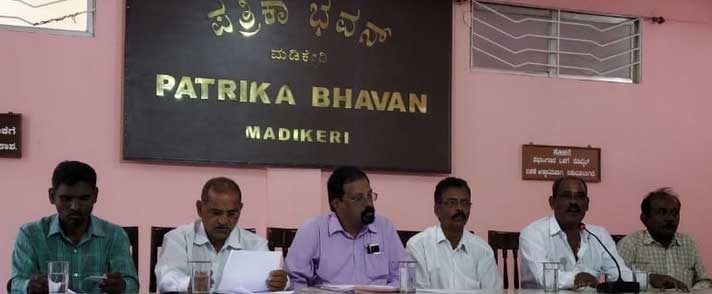We can choose not to see what we don’t want to – but we can do so only at our own peril

As a boy, the German novelist Max von der Grun heard the news of Hitler becoming the Reich Chancellor over the radio on 30 January, 1933 . Two days later, he and his family listened to Hitler speaking to the nation, again over the radio, on his first day in office:
Hitler proclaimed his new government officially in power. He did not do so before the Reichstag, the elected parliament, but over the radio. The meaning was clear enough ….
Were the people clearly aware of his contempt for the parliament? I doubt it. …In any case, my family considered it quite proper that Hitler had ceased to address …. the deputies of the Reichstag, and had turned directly to the people.

It is hard to miss the similarities between Adolf Hitler and our very own Narendra Modi here. Like the Fuehrer, the Indian Prime Minister has never shrunk from showing the country his complete disdain for the Indian parliament – never mind the tearful tribute he paid to this same parliament (‘The temple of democracy…’ et cetera) when he was about to enter it upon being elected to office. Within two months of coming to power, Hitler got the Reichstag to pass what is known as the Enabling Act, a piece of legislation that spelled the death of the very same Reichstag by vesting in the Chancellor the power to frame and sign off on any law he deemed necessary ‘in national interest’. For the next 12 years of the Third Reich, the Reichstag met periodically only to ratify extensions of the same Act. (In the fitness of things, the great German parliament was housed in those years in an Opera house for the most part.) Mr Modi has skipped more sessions of the parliament than he has attended during his tenure as PM. He chose to stay away even when the parliament was discussing issues that would have far-reaching consequences. Often enough, he scoffed at parliamentary protocol by repeatedly promulgating executive ordinances in lieu of proper legislation. He also announced major policy initiatives at public engagements outside of the legislature, and did so quite frequently. Most tellingly, he often side-stepped the parliament’s ‘upper’ house – the Rajya Sabha, where his party did not have a majority – on the specious argument that certain legislations did not need the Rajya Sabha’s ratification. (His histrionics have often given the parliament a near-opera house look, too.) Of course he hasn’t yet sought to dissolve parliament altogether, but there are enough straws in the wind to suggest that rewriting the Indian constitution is one of his party’s top priorities. In the event of a strong mandate for a second term in office, he can surely devise ways and means of marginalising the parliament more completely by amending the constitution and dramatically changing the balance of power in favour of the executive, i.e., of himself. The Enabling Act is but a short step from that position.
In Mr Modi’s case as in Hitler’s, the undermining of the parliamentary process took on another interesting aspect: both chose to communicate directly with the citizenry without any structured intermediation by either the legislature or the media. Hitler used the radio, while Modi’s modern-day arsenal also included TV, the internet and its numerous off-shoots. This mode of communication has unparalleled advantages for an unscrupulous practitioner of realpolitik. One, it can be an uninterrupted, and suitably grandiose, monologue which needs fear no challenge from a rational, unbiased audience which would like to sift the grain from the chaff by asking questions . Equally importantly, by giving to the common listeners/viewers a sense (however illusory) of direct access to the country’s most powerful politician — thereby creating in the common citizen a false sense of empowerment — it enhances the speaker’s image very significantly in the public’s eye. This is a spectacular game of ‘republican’ showmanship that helps subvert democratic institutions far more effectively than any open assault on these same institutions could hope to achieve.

It takes a gifted demagogue to succeed in this game, and Mr Modi’s skills in this area are quite as formidable as Hitler’s. Ethical or moral scruples have hardly bothered either of them, and so their ability to manipulate public opinion has been almost limitless. When, after scoring stunning initial successes in their Russian campaign of 1941-42, the German Sixth Army led by General Paulus was routed in the battle of Stalingrad (now Volgograd), Hitler insisted to his countrymen that what looked like a setback was actually a strategic triumph. Most Germans believed their Fuehrer. In the great demonetisation misadventure of November, 2016, Mr Modi managed to persuade a large majority of Indians – including many who lost everything they had in that cynical image-burnishing gambit of a megalomaniac — that their sacrifices would eventually improve the quality of their own lives significantly. The BJP’s rousing victory in the UP Assembly elections of March, 2017 was a testimony to the fact that the PM’s words had carried conviction.
Over and above their cynical disregard of parliamentary conventions and their undoubted talent for histrionics, let us note another character trait that Hitler and Mr Modi appear to share in common: the conviction that they were ordained to play a messianic role in the lives and affairs of their respective nations. Hitler’s capacity for deluding himself on this score has been demonstrated too often to bear repetition. For Mr Modi, there are enough tell-tale signs that he is also convinced he is a messiah: referring to himself in the third person without a trace of embarrassment; an obsessive craving for photo-ops to show his carefully-groomed physiognomy to the world every minute of the day; laying claim to credit for anything good happening in his time, even when it has had not the slightest link to him personally; equally, a fervent belief that all social or economic ills predate his tenure or are the results of the opposition’s conspiracy; and the compulsive change of ‘costume’ several times in course of a day. He is clearly past that stage when he needed others to tell him he was great. He now feels it in his very blood. Only a trained psychologist can decipher for us the genesis of self-serving narcissism, but as lay citizens, we can visualise its impact on human communities easily enough. Hitler was alive and well within living memory, wasn’t he?.
Like Hitler in the early-to-mid 1930s (before he was ready to formally launch his campaign for a pan-European empire and the Holocaust), Mr Modi has been playing upon the basest instincts that still survive in most human collectives (usually lying dormant, but liable to be awakened into a frenzied existence if prodded cleverly enough) despite centuries of civilising influences : a deep-rooted sense of insecurity; suspicion of others in the community perceived to be competing for the same finite resources; a visceral antipathy towards the unfamiliar and ‘the other’; a mindless obsequiousness towards someone seen as more powerful than ‘us’; and a non-rational susceptibility to pomp and grand ritual. Hitler invoked fantastic images of a triumphant Germany bringing all the ‘inferior’ nations to their heels; Mr Modi’s ideology exults in the project to revive the supposedly unsurpassed glory of an ancient Bharat. For both, militant nationalism is the way to go. For both, conflict and strife are not only unavoidable in achieving their grand objectives, they are enmeshed with these objectives so completely as to be indistinguishable from them. For Hitler, the ‘other’ comprised Jews, Slavs, Communists and radical Socialists, and such ‘non-mainstream’ elements as homosexuals and gypsies. Mr Modi has not yet had the opportunity (a second term in office is sure to give him one) of fully propounding his ‘world view’ in public, but has already done and said and insinuated enough to point to his unmistakable enemies: non –Hindu religious minorities (Muslims most of all: as the Chief Minister of the western-Indian state of Gujarat, he virtually presided over a pogrom of Muslims in February/March 2002 which left over 2000 dead; and he never so much as acknowledge that it was a massacre); communists and socialists and social liberals; civil rights activists; and, of course, Pakistan (both the state and the nation). Though he has not yet been able (for fear of losing elections) to articulate it clearly, his resentment at Dalits and other ‘low’ caste denominations is unmistakable, and the RSS, inside whose hallowed precincts his ideological moorings rest, has never made any secret of its distaste for every societal segment other than the ‘high-bred’ Hindu male. Denial of justice in nearly every walk of life to Dalits has been quite as pronounced and frequent in Mr Modi’s India as their denial to Muslims. Both these communities have been repeated victims of orgies of violence and abuse staged by Mr Modi’s cohort, and he has clearly given his blessings to these abominations by doing nothing and even saying little against them. In fact, the most brazen perpetrators of such crimes have often received overt endorsement from his own establishment. This establishment has also repeatedly equivocated on issues such as gay rights and gender equality. Many of its influential voices have expressed horror at decriminalising gay sex. They have also been quite open about how they think that women ‘belong’ in family homes rather than at the workplace. It is well-known that Hitler loathed homosexuality, and gay men happened to be among the first detainees at Nazi concentration camps. As for women, Nazi Germany insisted on taking them out from the country’s work-force, encouraging them to be homemakers and mothers instead.
The points at which Mr Modi’s personality – as well as his personal style of functioning – converge with Hitler’s are too striking to be wished away as accidental. That, in less than five years’ time India is so far advanced on the path to what can only be described as a variant of Fascism points to the fact that the congruence goes beyond similar character traits alone. The historical contexts are very important here. Weimar Germany was an ill-fated republic that can be said to have been doomed at its birth to early decay and death. On the other hand, when Mr Modi came to power, India had an on-the-whole stable economy, and despite wide-ranging social and economic inequalities (and resultant tensions), was a functioning democracy. That he has been able to so seriously undermine that democratic structure in such short time demonstrates the odious forces he has brought into play. Writing in 1939, the German journalist Sebastian Haffner recalled a conversation he had had with his father soon after Adolf Hitler rose to power in January, 1933:
I discussed the prospects of the new government with my father. We agreed that it had a good chance of doing a lot of damage, but not much chance of surviving very long. How could things turn out so completely different?
What had given the young Haffner and his father hope was that, in the 14 years since the creation of the Weimar Republic in November, 1918, Germany had had as many as 14 Chancellors. Since Hitler’s hold on power was unlikely to last long, they told one another, there was only so much harm he could possibly do. But when things did turn out to be so very different, Haffner (who had to flee Germany in 1938) agonised over the question ‘how’. And, soon enough, he had the answer:
Perhaps it was just because we were all so certain that they could not do so – and relied on that with far too much confidence. So we neglected to consider that it might, if worse came to worst, be necessary to prevent the disaster from happening.
Looking around India today, one cannot help a creeping feeling that, like Haffner and his father in Germany in 1933, we may soon rue what we are doing now. More accurately, what we are not doing now but would have, if only we were a tad less smug in our liberal complacency. For we are looking on as the Indian state descends steadily into bedlam.
Anjan Basu freelances as literary critic, commentator and translator. He can be reached at basuanjan52@gmail.com
Courtesy: Counter Current

